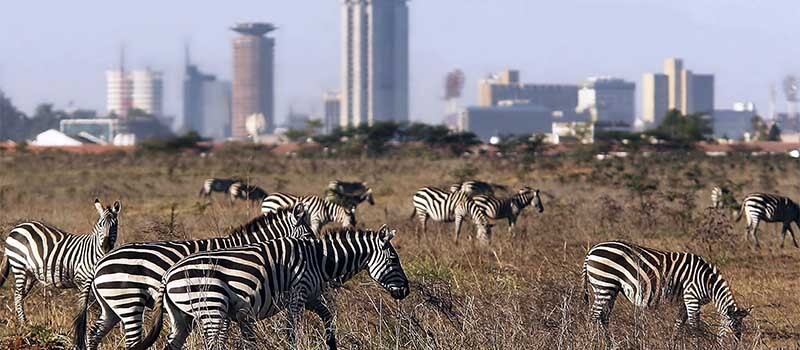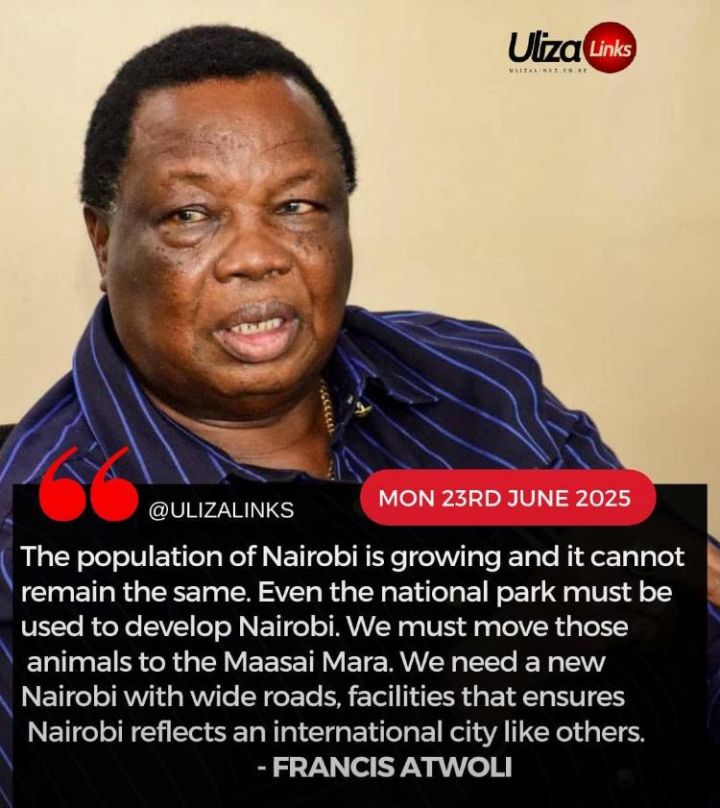Contact : +254 725 877 146
Nairobi National Park Is Not for Sale: Government Plans to Destroy Kenya’s Natural Heritage

The recent pronouncements and actions by the Government of Kenya, signaling intentions to fragment or destroy Nairobi National Park in the name of development, represent a grave threat to Kenya’s ecological legacy, constitutional integrity, and international reputation.
Nairobi National Park: A Global Treasure, Not an Idle Space
Nairobi National Park is not an idle or underutilized tract of land awaiting “better” use. It is a globally unique, constitutionally protected ecosystem,the first of its kind in East Africa and the only national park within a capital city in the world. Its value extends far beyond its boundaries, touching the lives of millions of Kenyans and international visitors alike.
The park:
- Provides educational, recreational, spiritual, and tourism value to citizens and visitors.
- Hosts endangered and migratory wildlife, including lions, black rhinos, giraffes, cheetahs, and over 400 bird species.
- Acts as a carbon sink, flood buffer, clean air filter, and water catchment for the city.
- Generates over Ksh 1 billion annually and supports more than 1,000 direct and indirect jobs (KWS Economic Impact Reports, 2023).
- Stands as a symbol of Kenya’s global leadership in conservation and nature-based climate solutions.
The Dangers of Sacrificing Nature for Short-Term Gain
Proposals to convert Nairobi National Park or other protected areas into roads, railways, or industrial estates are not only short-sighted but also illegal and deeply irresponsible. Such actions would:
- Violate Kenya’s Constitution (Article 69), the Wildlife Conservation and Management Act, the Forest Conservation and Management Act, and the Wetland Act.
- Destroy irreplaceable ecosystems forever, robbing future generations of their natural heritage.
- Undermine Kenya’s global commitments to conservation and climate action.
- Set a dangerous precedent for further encroachment on protected areas across the country.
- Erode public trust in government-led land use planning and environmental governance.
The recent proposal to construct the 12.5 km Riruta-Ngong commuter railway through Karen and Bulbul, if allowed to proceed without rerouting, would be a devastating blow,not only to Nairobi National Park but to the very principles of sustainable development and environmental stewardship.
False Choices: Development vs. Conservation
Let us be clear: development and conservation are not mutually exclusive. Kenya’s future must be climate-resilient, ecologically sound, and people-centered. There are viable alternatives that allow for progress without sacrificing our most precious ecological assets:
- Invest in satellite cities such as Konza, Machakos, and Isinya to relieve pressure on Nairobi.
- Upgrade existing transport and industrial infrastructure outside sensitive ecological zones.
- Enforce robust environmental impact assessments and ensure genuine public participation, especially from directly affected communities.
- Integrate parks, reserves, and green spaces into national and urban plans as essential infrastructure.
- Position Nairobi National Park as a world-class model for sustainable urbanism, eco-tourism, and environmental education.
Nairobi National Park Is Not for Sale
- Nairobi National Park and other protected areas are not for sale, relocation, or fragmentation.
- Forests and ecological corridors are foundations of progress, not barriers.
- Communities, youth, and conservation stakeholders must be meaningfully engaged in shaping Kenya’s development path.
A Call to Action
The Government of Kenya to immediately halt any plans, proposals, or projects that threaten the integrity of Nairobi National Park. Thr Parliament, the Judiciary, civil society, and the public to defend our constitutional and ecological heritage. Any attempt to destroy or diminish Nairobi National Park is an affront to every Kenyan and a betrayal of our children’s future.
Nairobi’s Unique Privilege And Responsibility
Nairobi is the only capital city in the world with a national park at its heart. This is not a problem to be solved, but a privilege and a global competitive advantage to be celebrated and protected. Let us build a Nairobi that grows with nature, not against it.
Nairobi National Park is not for sale. Kenya’s natural heritage is not negotiable. Let us stand together to protect it, now and for generations to come.

